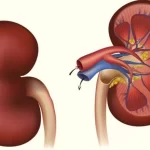What is coronavirus?
Coronavirus symptoms (COV) belongs to a family of viruses. Its infection can cause problems ranging from cold to breathlessness. This virus has never been seen before. The virus infection started in December in Wuhan, China. According to WHO, fever, cough, shortness of breath is its symptoms. So far no vaccine has been made to stop the virus from spreading.
What are the Coronavirus symptoms?
As a result of this infection, problems like fever, cold, shortness of breath, runny nose and sore throat arise. In severe cases, pneumonia and breathing may become very difficult.
In some rare cases, its infection can also be fatal. Its symptoms are like a common cold. That is why it is important to do a test to confirm that the infection is of Coronavirus ie Kovid-19.
This virus spreads from person to person. Therefore, great care is being taken about this. The virus first caught in China in December. It is expected to reach other countries.
How does Coronavirus spread? (Coronavirus symptoms)
The first cases are thought to be transferred from animals to humans, new cases have spread from person to person.
An increasing number of patients weren’t in danger in animal markets, the CDC says, indicating a person-to-person spread. Chinese officials report that a person-to-person spread within the community is occurring in China.
Person-to-person prevalence has also been reported outside of China, including within us. The CDC said in late January a person in Illinois caught the virus after his wife returned from China, and an identical broadcast occurred in California between the spouses.
According to the CDC, coronavirus spreads from one person to a different within about six feet, referred to as close contact. this is often because it’s believed that when an infected person coughs or sneezes, it spreads like influenza and other respiratory pathogens, the CDC explains.
The CDC states that it’s unclear whether an individual can acquire a replacement coronavirus by touching its nose, mouth, or eyes after touching an object or object on the surface. But the planet Health Organization says coronaviruses don’t survive long on items, and it doesn’t spread on letters or packages from China.
What are the preventive measures of Coronavirus?
- The Ministry of Health has issued guidelines to prevent coronavirus.
- According to them, hands should be washed with soap.
- Alcohol-based hand rub can also be used.
- Keep your nose and mouth covered with handkerchief or tissue paper while coughing and peeling.
- Keep distance from people who have cold and flu symptoms.
- Avoid the intake of eggs and meat.
- Avoid exposure to wild animals.
Should you wear a mask?
- If you have any breathing problem, you are sneezing or coughing, then it is advisable to wear a mask so that the rest are safe.
- There is no need to wear a mask if you do not have any such symptoms.
- If you are wearing masks, it is important to wear them properly and dispose of them properly so that infection can be prevented from spreading.
- Wearing only a mask does not stop the infection from spreading. Together you will have to wash your hands continuously, cover your mouth while sneezing and coughing, and avoid people suffering from cold-like symptoms more closely.





